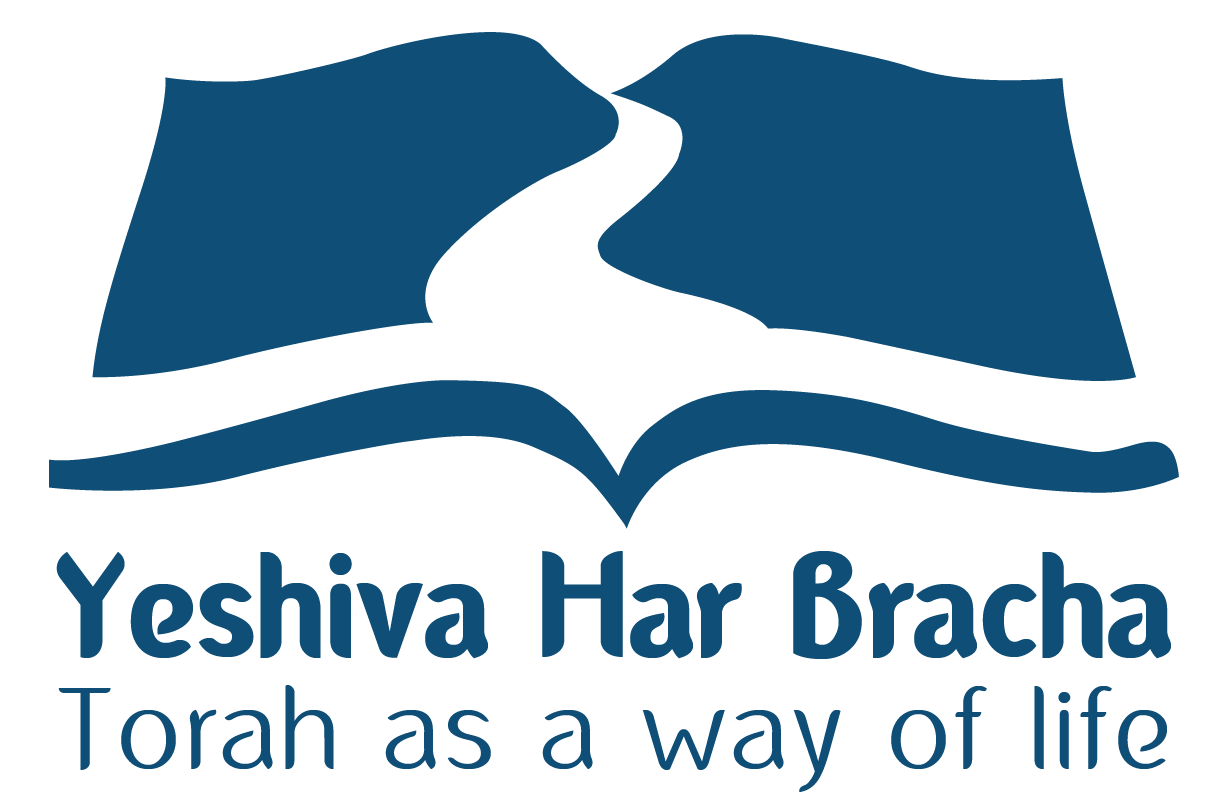Last week, the new book “Faith and Its Commandments” was published in two volumes as part of the “Peninei Halakha” series ● Questions of faith in our generation regarding foreign cultures and religions are becoming increasingly significant and widespread ● Idolatry is extremely harmful, but human beings are beloved and precious, and even while practicing idolatry and committing wrongdoing, they also have good intentions ● These are important topics that must be written about ● The book is largely based on the teachings of Rabbi Avraham Yitzchak HaKohen Kook ztz”l, who was unparalleled in his depth and breadth of explaining faith in light of our generation’s challenges
Last week, my new book “Faith and Its Commandments” was published in two volumes as part of the “Peninei Halakha” series. As appropriate for a personal column, it is fitting to share with my readers the main points I wrote in the book’s introduction:
“Faith (emunah) in God is the essence of human life, it is one’s highest aspiration to the Heavens, for which one yearns infinitely, and through which one is helped to fulfill earthly aspirations. Pure faith is directed toward one God, but since the one God is beyond all definition, and humans desire to define, see, and touch the object of their faith and the source of their help, they tend to materialize their faith, and thus, arrive at idolatry and seek help from sorcery, divination, and fortune-tellers to achieve their earthly aspirations. In our generation, questions of faith regarding foreign cultures and religions are becoming increasingly significant and widespread, thus requiring a comprehensive systematic approach to all philosophical and halachic questions, which is the aim of this book.”
The Torah Commandments Explained in the Book “Many Torah commandments deal with faith and its purification from impurities, including all prohibitions of idolatry and sorcery. Thus, this book clarifies about fifty-three commandments out of the 613 Torah commandments. Nine of them are presented in Maimonides’ ‘Laws of the Foundations of Torah’, and forty-four in the ‘Laws of Idolatry’. Initially, I thought of calling the book ‘Faith and Its Impurities,’ because indeed all sins of idolatry, sorcery, and superstitions are impurities of faith. However, many people told me that the name would not be understood, so I called the book ‘Faith and Its Commandments’.”
The Internal Structure of the Book
“I will review the topics while trying to describe the internal order of the book. The first chapter deals with a broad explanation of the faith of Israel, and the second with explaining the inclination toward idolatry, leading to chapter 3 which clarifies the general prohibitions of idolatry. Due to the importance of faith and the severity of idolatry, the main commandment of self-sacrifice is for the faith in God’s unity, as explained in chapter 4. Chapters 5-9 deal with the prohibition of idolatry for Noahides, and Judaism’s relationship to Christianity, Islam, Eastern religions, and the future of religions. Following this are five chapters, 10-14, on the laws prohibiting idolatry for Jews, including prohibitions of deriving benefit, and prohibitions of approaching idolatry. Chapter 15 deals with the safeguards established by the Torah for the prohibition of idolatry, primarily the prohibition of making human forms, angels, sun, and moon. This concludes the first volume that deals with faith and idolatry.
The second volume deals with the various manifestations of faith, beginning with chapters 16-17 on prophecy and divine inspiration, and chapter 18, which deals with nature and miracles, which are two manifestations of divine governance. Chapter 19 deals with the prohibitions of sorcery, the forces that sorcerers use, and the damage they cause. From this, chapters 20-21 deal with practical Kabbalah, rabbis, and miracle workers, including attitudes toward amulets, and the danger of using miracles. Chapters 22-23 deal with the meaning of curses, blessings, and the evil eye, and the guidance related to them. Chapter 24 deals with the Torah’s prohibitions regarding divination and fortune-telling, and chapter 25 with the attitude toward astrology. Chapter 26 deals with the Torah’s prohibitions regarding sorcery related to the dead, as well as attitudes toward demons. Chapter 27 deals with dreams, their meaning, and related laws. Chapter 28 deals with the prohibitions of non-Jewish customs, and chapter 29 deals with what is permitted for medical purposes, including attitudes toward alternative medicine. Chapter 30, which concludes the book, deals with coping with the crisis of faith in our generation, and the path through which we can grow toward pure faith and redemption.”
The Balance Between Spiritual Meaning and Practical Halakha
“In all my ‘Peninei Halakha’ books, I have also explained the spiritual meaning, especially in the introductory chapters, and sometimes also in the halachic chapters by emphasizing their spiritual reasons. In this book, which deals with faith and its commandments, it was naturally necessary to explain the foundations of faith in depth, as required for explaining the commandment in practice. Similarly, in the other commandments explained in the book, since they deal with faith and the errors that branch from it, it was necessary to explain their laws and guidance together with their spiritual meaning. Still, I maintained the framework of ‘Peninei Halakha,’ meaning that the book is intended to teach the Torah’s guidance for life.”
Our Master, Rabbi Kook
“This book is largely based on the teachings of Rabbi Avraham Yitzchak HaKohen Kook ztz”l, the greatest Torah sage of recent generations, who was unparalleled in his depth and breadth of explaining faith in the face of our generation’s challenges. I was privileged to grow up on his holy words from my youth, as my father and teacher was a distinguished student of our teacher and mentor, Rabbi Tzvi Yehuda HaKohen Kook ztz”l, and also served as a teacher for many years at the ‘Mercaz HaRav’ yeshiva founded by Rabbi Kook. Through this, I was also privileged to grow up under Rabbi Tzvi Yehuda, who embraced me with love as a child, a youth, and a young man when I studied at the ‘Mercaz HaRav’ yeshiva. I heard hundreds of lectures from him.”
The Hesitation About Writing the Book
“At first, I hesitated whether to write this book and whether to elaborate on different religions, both because of the great challenge it presents, requiring extensive study of halachic topics not commonly learned in yeshivas, and because these subjects are very complex, as the good and evil within them are mixed. Idolatry is very harmful, but human beings are beloved and precious, and even while practicing idolatry and committing wrongdoing, they also have good intentions, and do good deeds. The penetrating question is: how to contain both extremes together, both of which have strong sources in the Torah. This is especially difficult regarding the Christian religion, which caused terrible suffering to our people, yet also advanced the world, and encouraged many to improve their character, and do good deeds. Also, I was concerned that if I honestly and straightforwardly wrote Judaism’s position on the positive aspects of various religions, especially Christianity, and perhaps also Islam, there would be faithful Jews, in whose souls the suffering they caused the Jewish people is seared, who would oppose me for not condemning them entirely. Conversely, I was concerned that my critical words about various religions would cause pain to their believers, as I know some of them will also study the book.
“I almost thought not to write this book, or at least not to deal in detail with the various religions. However, in one of my Sabbath sermons where I shared with the audience the dilemma that tore my soul, many encouraged me to write these things, with the main argument being that these are important topics that must be written about, and perhaps no Torah scholar would respond to this challenge. By God’s grace, I was strengthened and immersed myself in clarifying the subject, while relying on the words of Rabbi Kook, and with him, Rabbi Elijah Benamozegh quoted in chapter 9. I began the chapter on Christianity with these words: ‘With awe and fear regarding the severity of the subject, and the memory of the holy ones who were killed sanctifying God’s name, and with love for every person created in God’s image, and respect for all believers in God who pray for repentance and redemption, I will try to explain the Torah’s position regarding the Christian religion.'”
The Attitude Toward Supernatural Matters
“In the chapters dealing with sorcery, divination, fortune-telling, miracles, and practical Kabbalah (19-26), I explained according to the mystics the spiritual roots through which one can act in the world, from the side of holiness, and conversely, from the side of impurity. Nevertheless, I of course presented the opinion of the Geonim and Maimonides who believe that acts of sorcery are false, and presumably, also disagree with most of the explanations of the Kabbalists.
“Among the students who reviewed the drafts, including some members of the Yeshiva Har Bracha Institute, there were those who criticized this sharply, as they believe it is quite agreed today that the main view follows Maimonides, and therefore, it was inappropriate to explain the supernatural powers and their roots, especially since those who are drawn to them tend to err in the foundations of faith and morality and cause serious problems, and consequently, it is not appropriate to give them room.
“However, for three reasons I expanded on explaining supernatural matters: First, my principled position that one should not invalidate an important opinion, because in every important opinion, there is truth. This applies both in halakha, and in thought. Even when it seems clear to me that one should rule according to one opinion, one should mention the second opinion and explain it properly, because without it, the topic is incomplete. And only after presenting and explaining it properly, one should explain why not to rule according to it.
“Second, beyond the principle, my opinion tends toward that of Nachmanides, the Kabbalists, and the Hasidim, that it is possible through the powers of holiness or, conversely, powers of impurity, to change things in the world, and know future events. As explained in the book, some even explain that Maimonides partly agrees with them. However, since these are supernatural powers that are difficult to measure, many lie about these matters. Nevertheless, I presented the opinion of Maimonides and his supporters with proper respect, so that anyone whose opinion leans toward them, will feel comfortable if they do not accept at all the opinion of Nachmanides and the Kabbalists.
“Third, precisely through recognizing these powers and explaining them properly, one can understand why it is not right and not worthwhile to use them, which is the position of most chachmei ha’sod (mystics). Thus, in practice, the proper guidance is agreed upon by most Jewish sages.”
Self-Sacrifice
“The book was written during a difficult war, when most of our yeshiva students fought continuously on the front throughout the war, and about two hundred and fifty men with families in the settlement served for hundreds of days on various fronts. In chapter 4, I dealt with the commandment of self-sacrifice, and the virtue of those who sanctify God’s name. In section 2, I quoted our Sages (Sanhedrin 110b): “‘Gather to me my pious ones’ – these are the righteous in every generation, ‘those who made a covenant with me’ – these are Hananiah, Mishael, and Azariah who gave themselves into the fiery furnace, ‘over a sacrifice’ – these are Rabbi Akiva and his colleagues who gave themselves to be slaughtered for the words of Torah.’ Inspired by the heroism of our generation’s heroes, I wrote: ‘It is appropriate to continue to interpret in our day the verse “and the heavens declare His righteousness” – these are the soldiers and settlers who risked their lives for the defense of the People and the Land.’
“The book is dedicated to the elevation of the souls of all the heroes who fought for the defense of the People and the Land, among them the yeshiva student Ilan Cohen, may God avenge his blood, who volunteered and immigrated to Israel to study in the yeshiva, and serve in the army. And also my relatives, the dear brothers, Noam and Yishai Slutzky, may God avenge their blood. On the morning of Simchat Torah, when they heard about the severe attack on the settlements on the Gaza border, they voluntarily rushed to save their brothers, and fell in heroic battle defending Kibbutz Alumim. Noam and Yishai are the sons of Rabbi Shmuel and Talia Slutzky. Talia is the daughter of my uncle, Rabbi Eitan Eizman.”
This article appears in the ‘Besheva’ newspaper and was translated from Hebrew.








